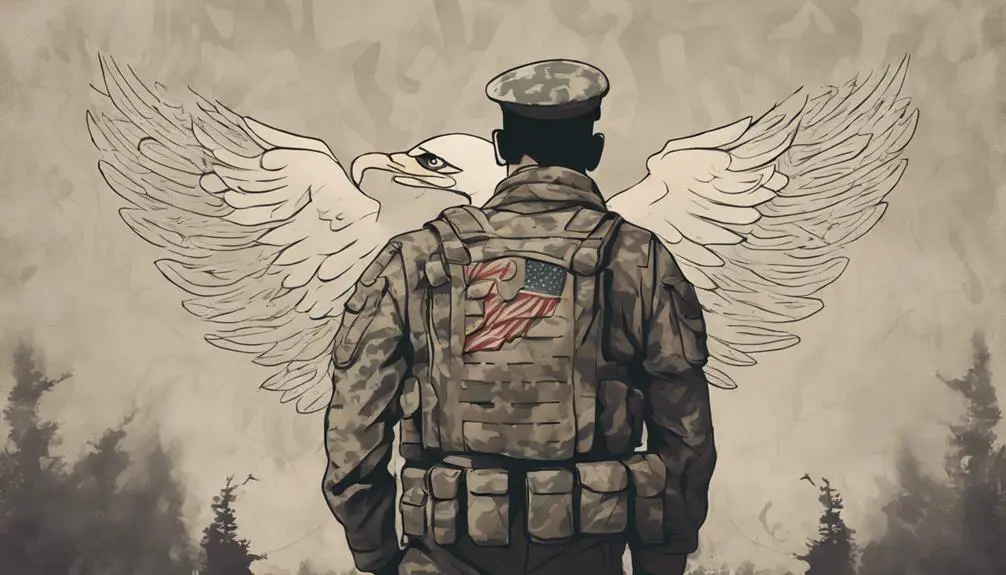You've likely heard 'got your six' tossed around, but do you know its military roots? This phrase originated from the military's clock directions system, where 12 o'clock is in front of you and 6 o'clock is behind you. 'Got your six' means having someone's back, signifying crucial support, camaraderie, and loyalty. It's a promise of protection, watching out for threats from behind, and being vigilant in high-stress environments. It's a bond between teammates that's essential in combat zones. As you explore this phrase further, you'll uncover the evolution of military slang and the unbreakable bonds that form on the battlefield.
Got Six: The Origins
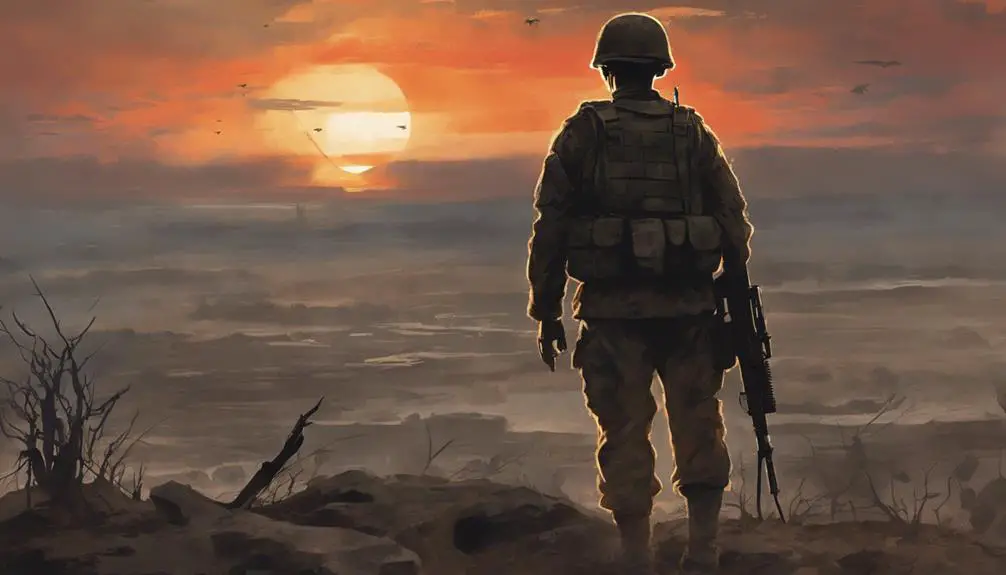
You're probably wondering where the phrase 'got your six' originated from, and the answer lies in the military's use of clock directions to indicate spatial awareness. In the heat of battle, soldiers need to quickly communicate their surroundings, and that's where the clock system comes in. The concept is simple: imagine a clock face superimposed over your surroundings, with 12 o'clock being directly in front of you and 6 o'clock being behind you. This system allows soldiers to quickly convey important information about enemy positions and movements.
The phrase 'got your six' is deeply rooted in this military heritage, where 'watching your six' means having your back protected. The linguistic roots of this phrase are a confirmation of the military's influence on modern language. The phrase has since been adopted in popular culture, symbolizing camaraderie, trust, and loyalty. When someone says 'I've got your six,' they're implying that they've got your back, just like a fellow soldier would in combat.
Watching Your Six O'Clock
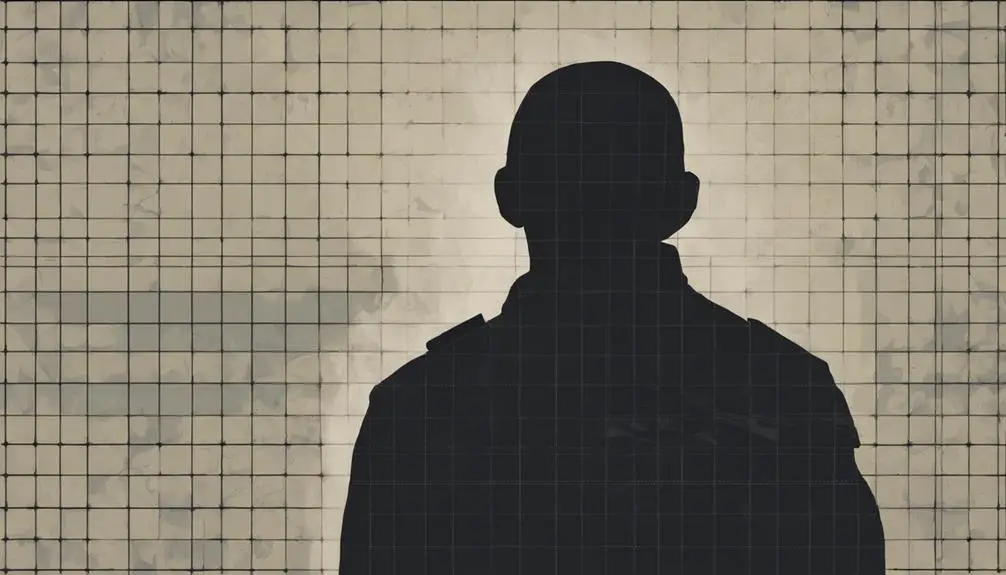
When you're watching your six o'clock, you're not just protecting your back, you're anticipating potential threats from behind. This mindset is vital in high-stress environments where situational mindfulness is key. You're not just reacting to immediate dangers; you're proactively scanning for potential risks. This level of tactical awareness allows you to stay one step ahead of the game.
In combat situations, watching your six o'clock can be the difference between life and death. You're constantly monitoring your surroundings, anticipating potential ambushes or attacks from behind. This heightened sense of awareness enables you to respond quickly and decisively to emerging threats.
In a broader sense, watching your six o'clock translates to being vigilant in everyday life. It means being aware of your surroundings, anticipating potential dangers, and taking proactive measures to mitigate risks. By adopting this mindset, you'll be better equipped to handle unexpected challenges and stay safe in uncertain environments.
Got Your Six Explained
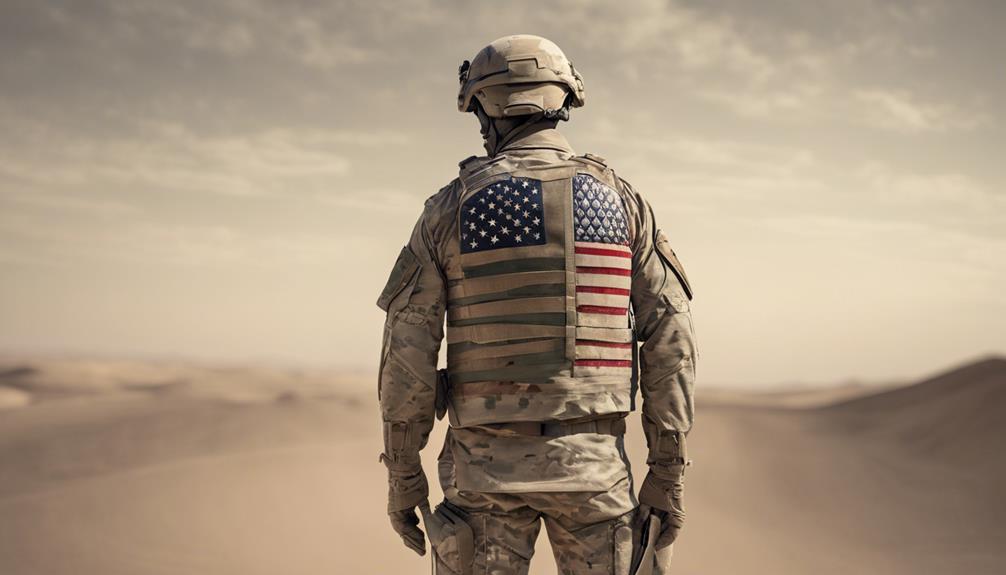
Got your six is a phrase that originated in the military, where it's used to convey that someone has your back, literally and figuratively, and is watching out for your safety and well-being. It's a promise of protection and support, and it's often used to describe the bond between teammates or comrades-in-arms. When someone says "I've got your six," they're telling you that they're covering your blind spot, watching your back, and ready to step in if you need help.
In the military, this phrase is often used during guard duty, where soldiers rely on each other to stay vigilant and alert. It's a reminder that you're not alone, and that your buddy has your back. This phrase is also rooted in tactical teamwork, where soldiers work together to achieve a common goal. When you know someone has your six, you can focus on the task at hand, knowing that you've got a teammate watching your back.
I've Got Your Back
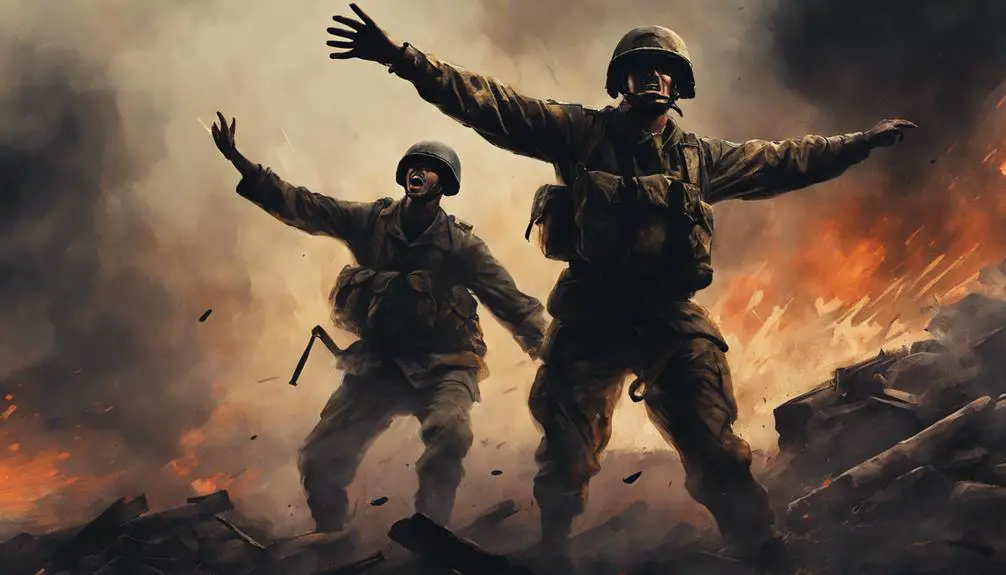
In the heat of battle, 'I've got your back' is more than just a phrase – it's a promise to have your teammate's back, no matter what. You're telling them that you'll be their brother's keeper, watching out for their safety and well-being even when the bullets start flying. It's a vow to be their silent guardian, always on the lookout for potential threats and ready to jump into action at a moment's notice.
When someone says "I've got your back," they're telling you that they've got your six, but it's more than that. It's a promise to prioritize your safety above their own, to put your life before theirs if necessary. It's a bond of trust that's forged in the fire of combat, and it's one that's not easily broken.
Six Up, Fighter's Cry
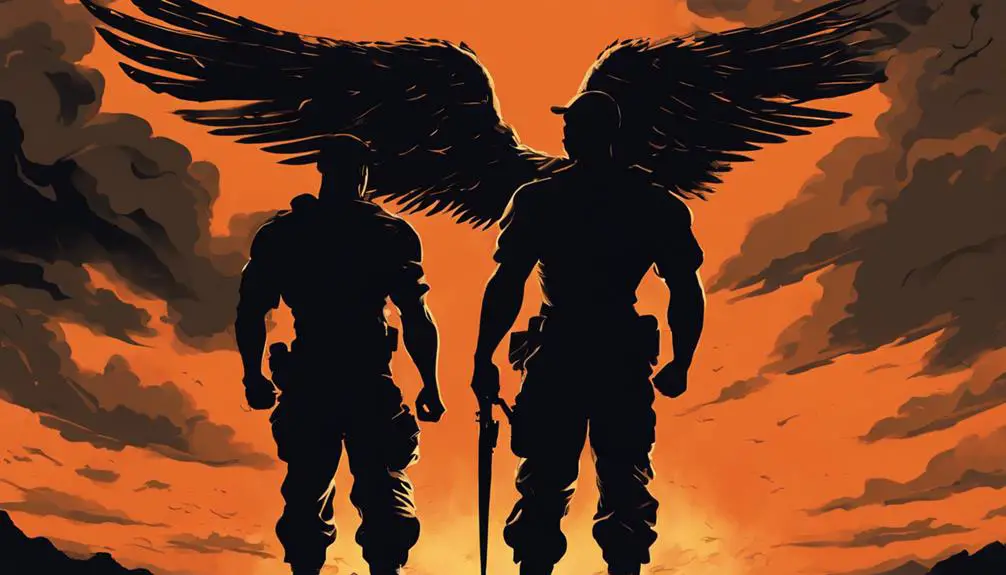
You're about to hear a battle cry that'll make your heart race: 'Six up!' This phrase is more than just a motivational shout-out – it's a tactical advantage in the heat of battle. When you hear 'Six up,' you know your wingman's got your back. It's a phrase rooted in Wingman wisdom, reminding you that your partner is covering your six o'clock, watching your rear, and keeping you safe.
In the chaos of combat, clear communication is key. 'Six up' is a concise, unmistakable signal that your partner is providing cover, giving you the freedom to focus on the mission at hand. This phrase is more than just a phrase – it's a promise of protection, a guarantee that you're not alone on the battlefield. When you hear those two words, you know you've got a tactical advantage, and that your wingman's got your back. So, the next time you hear 'Six up!', you'll know exactly what it means: you're safe, you're protected, and you're ready to take on whatever comes next.
Battlefield Lingo Evolution
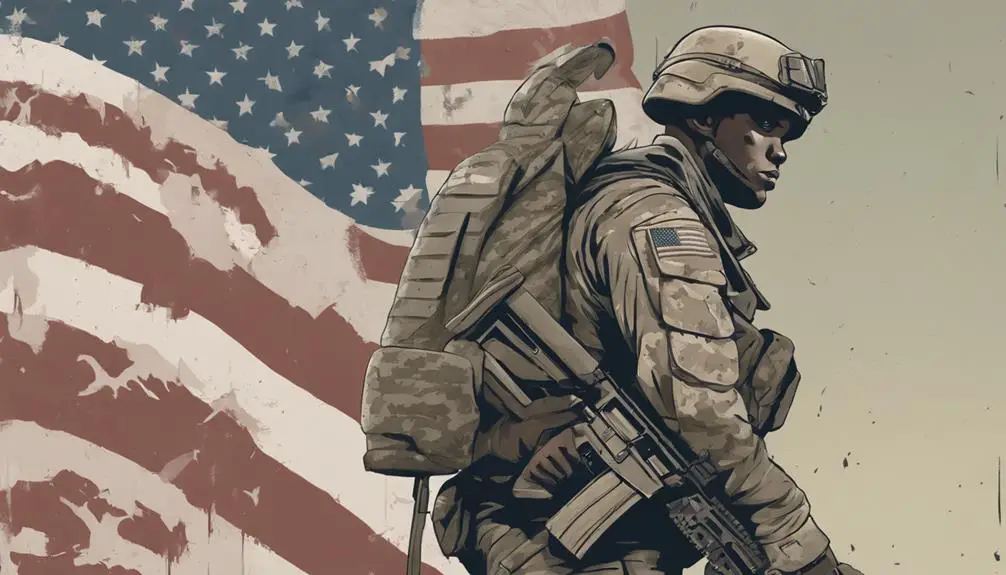
As military operations evolve, so does the language of the battlefield, with slang and terminology adapting to meet the needs of modern warfare. You're part of a dynamic, ever-changing environment where communication is key to success. The vernacular adaptation is a continuous process, driven by the need for effective communication, secrecy, and camaraderie.
In the heat of battle, you rely on linguistic camouflage to convey critical information without revealing your position or intentions to the enemy. Slang and acronyms become essential tools for quick, clear communication, allowing you to focus on the task at hand. You develop a keen sense of situational awareness, using context and tone to convey meaning beyond the literal interpretation of words.
As you navigate the complexities of modern warfare, your language adapts to the shifting landscape of conflict. You incorporate new terminology, abbreviations, and expressions to stay ahead of the curve. This evolving linguistic landscape is a tribute to the resilience and resourcefulness of military personnel, ensuring that communication remains a crucial component of success on the battlefield.
Trust in Combat Zones
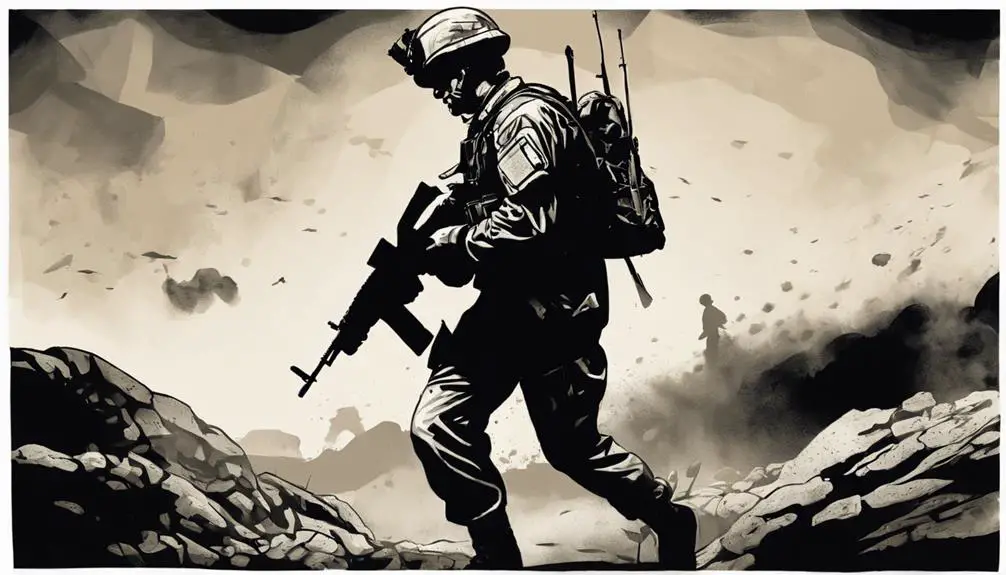
When bullets fly, trust is the glue that holds your team together, and it's forged in the fire of shared experience and mutual reliance in combat zones. You can't manufacture it in a lab or order it online; it's earned through sweat, blood, and sacrifice. In combat, you rely on your teammates to have your back, and you theirs. This mutual reliance creates an unbreakable bond, fostering combat camaraderie that's essential for survival. You trust your team to provide cover fire, to patch up your wounds, and to get you out of harm's way. This trust isn't blind; it's built on a foundation of shared experiences, from grueling training exercises to intense firefights. When you trust your team, you trust yourself, and that's when the magic happens. You become an unstoppable force, working in perfect harmony to achieve your mission objectives. In combat zones, trust is the currency that buys you another day alive.
Semper Fidelis in Action
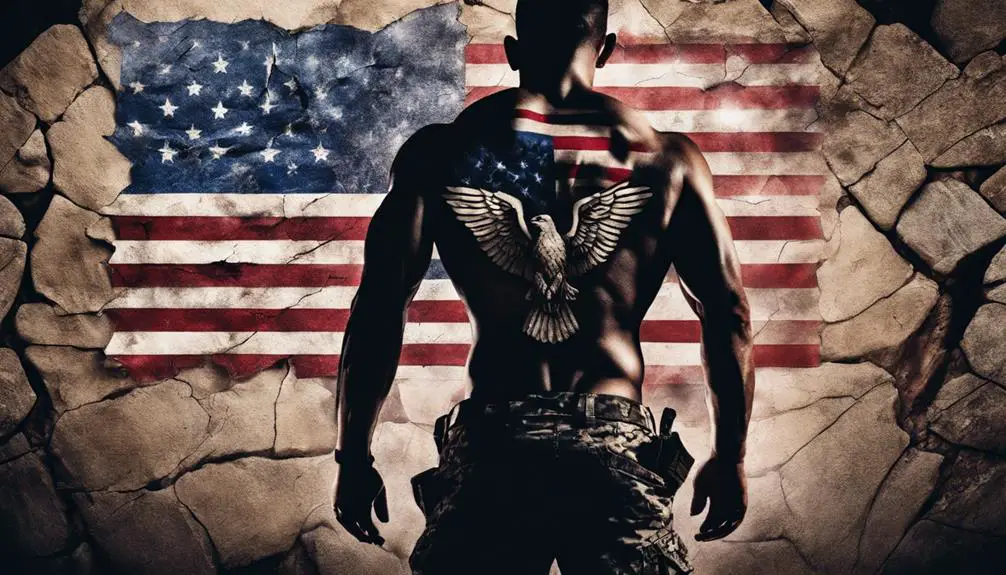
In the heat of battle, Semper Fidelis – the Marine Corps' motto of 'Always Faithful' – transforms from a slogan into a lifeline, as Marines put their lives on the line to protect their comrades. You're not just fighting for your country; you're fighting for the Marine brotherhood, bound together by a code of honor that's unbreakable. When the bullets start flying, you know your fellow Marines have your back, just as you have theirs.
This unspoken understanding gives you the courage to push forward, even in the face of overwhelming odds. You know that if you're pinned down, your brothers will do everything in their power to extract you. This trust is forged in the fire of combat, where the stakes are life and death. It's a bond that can't be broken, a bond that's rooted in the Marine Corps' core values of loyalty, duty, and sacrifice. When you're a Marine, you know that your brothers will always have your six, no matter what.
Loyalty in the Ranks
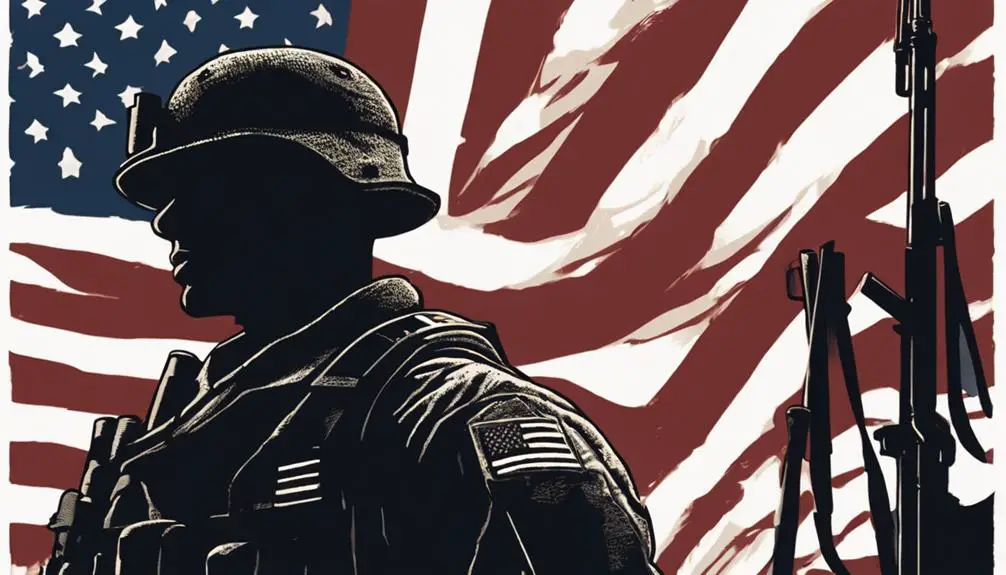
You're part of a proud tradition where loyalty isn't just a word, but a non-negotiable commitment to the Marine standing next to you. In the trenches, loyalty is the glue that holds the team together. It's the unspoken understanding that you've got each other's backs, no matter what. This bond is forged in the fire of shared experiences, and it's what sets the military apart from any other organization.
Brotherhood bonds are strengthened with every shared challenge, every hardship overcome, and every victory celebrated. When you've fought alongside someone, you develop a deep trust that can't be replicated in any other environment. This is the essence of Esprit de Corps – a sense of belonging to something greater than yourself. Loyalty in the ranks is about being accountable to your fellow Marines, about being reliable, and about being willing to make the ultimate sacrifice if necessary. You're not just fighting for your country; you're fighting for the guy next to you.
Unity in the Trenches
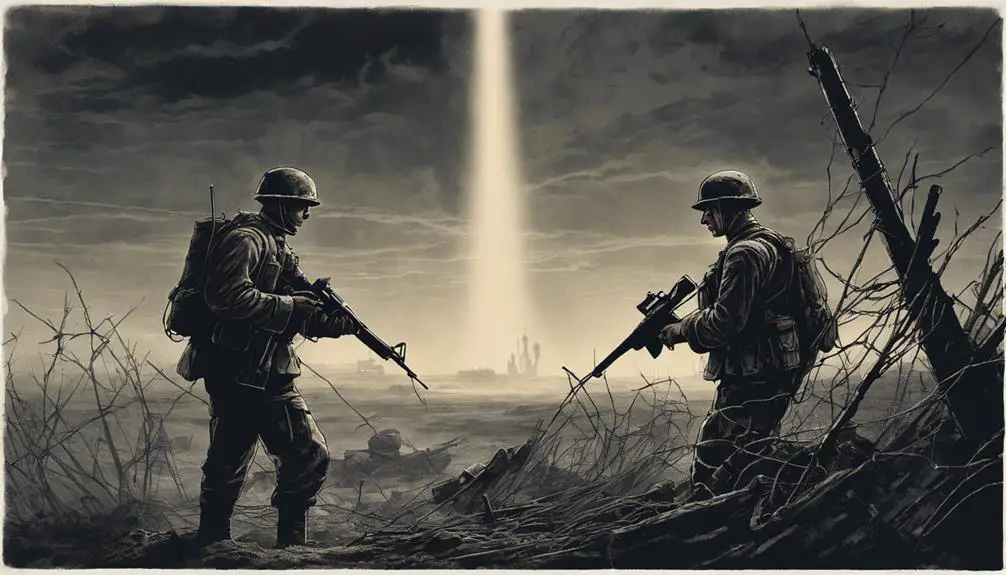
Marines in the trenches rely on each other's strengths to overcome the enemy's firepower, and in doing so, they forge an unbreakable bond that translates to unity on the battlefield. You're not just fighting for yourself, you're fighting for the guy next to you. This sense of unity is vital in high-pressure situations, where one misstep can be deadly. You become your brother's keeper, watching each other's backs, anticipating each other's moves, and covering each other's weaknesses. This is the foxhole fraternity, where camaraderie is forged in the heat of battle. You learn to trust your fellow Marines with your life, and they with yours. This unity in the trenches is what gets you through the toughest of times, when the bullets are flying and the stakes are high. It's what makes you feel like you're part of something bigger than yourself, something that can't be broken.
Frequently Asked Questions
Is "Got Your Six" Only Used in the Military?
You wonder if "got your six" is exclusive to the military, but the truth is, it's not. While its origins are rooted in military lingo, the phrase has evolved into everyday slang. Its origins date back to World War I, referring to the rear of an aircraft, or the "six o'clock" position. Over time, the phrase evolved to mean "watching your back" or having someone's trust. Today, it's commonly used in various contexts, extending beyond military circles.
Can Civilians Use "Got Your Back" in Everyday Conversations?
You're free to use "got your back" in everyday conversations, no matter your background. Civilians adopting slang from military culture is common, and this phrase has transcended its origins. You can casually tell a friend, "I've got your back" in a non-military context, conveying support and solidarity. Using slang in casual conversations adds flavor to your language, making you sound more relatable and authentic.
Is "Six" a Universal Term in All Military Branches?
You're wondering if "six" is a universal term across all military branches. The answer is no. While "six" generally means "back" or "rear," its usage varies between branches. Military lingo evolution has led to branch-specific terminology, with some using "six" more frequently than others. For instance, in the Army, "six" is commonly used to refer to a leader's back, but in the Navy, it's more context-dependent.
Can "Got Your Six" Be Used in Non-Combat Situations?
You're wondering if "got your six" can be used in non-combat situations. The answer is yes. This phrase has social context flexibility, allowing you to integrate it into casual conversations. It's not limited to military contexts. You can use it with friends, family, or colleagues to express solidarity or offer support. It's a casual phrase that's easily adaptable to everyday life, conveying a sense of trust and reliability.
Is "Got Your Six" a Phrase Only Used by American Military Personnel?
You're wondering if "got your six" is exclusive to American military personnel. The answer is no. While it originated in the US, the phrase has been adopted by other English-speaking militaries. Military cultural immersion and linguistic evolution have led to its widespread use globally. It's now a universal expression of camaraderie, transcending national borders. You'll find it's commonly used by military personnel from the UK, Canada, Australia, and other English-speaking countries.

